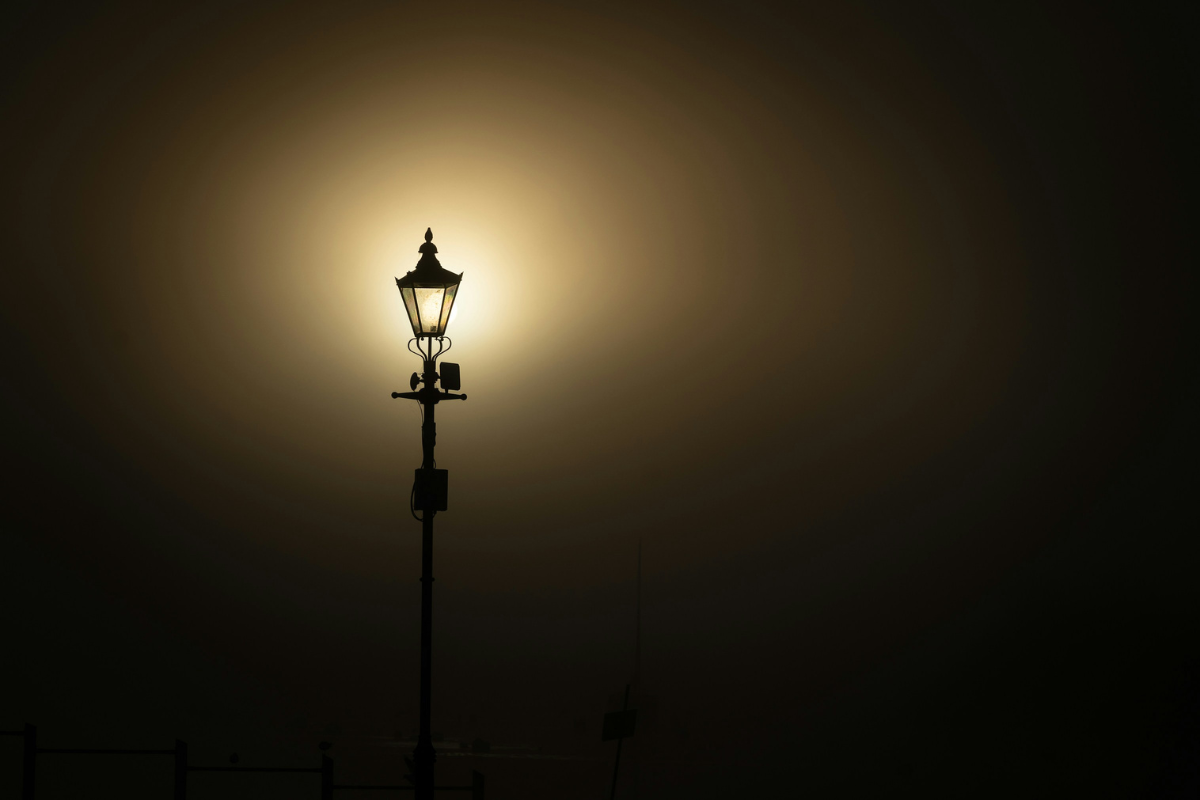A few weeks ago a street lamp collapsed in the empty Jerusalem parking lot my children and I cross through every morning on our way to their preschool. The giant light pole—at least 30 feet tall—lay strewn across the parking lot, its wooden pole intact but its glass light shattered. I tried to navigate the stroller around the shards and the exposed electrical wires.
Although we were not there when the lamp toppled, my kids were very shaken to see how the mighty had fallen, and even now, weeks after the lamp has been dragged away and presumably taken to a landfill somewhere, my toddler twins continue to shout, “Lamp fall down! Lamp fall down!” every time we cross the parking lot. They seem traumatized by the event and unable to let go, and now, with Tisha B’Av approaching, I think I understand why.
Tisha B’Av is a holiday commemorating the destruction of the Temple, first by the Babylonians in 586 BCE and then by the Romans in 70 CE. For Jews living during these eras, the Temple was the focal point of religious worship, which was characterized primarily by sacrifice. All Jews were obligated to make pilgrimages to Jerusalem three times a year, such that it was impossible to pass through the year without a visit to the Temple—and once the Temple was destroyed, that loss became indelibly etched in the Jewish national consciousness.
READ: What the Screw in My Tire Has to do with Tisha B’av
Like the destroyed Temple, the fallen lamp continues to haunt. No matter what else we are in the middle of talking about, my children can’t seem to pass through the parking lot without interrupting to invoke the lamp and bemoan its absence.
“How did it fall? Why did it fall?” my 4-year-old son keeps asking me, echoing the repeated “how” of Lamentations, the book of the Bible in which the prophet Jeremiah elegizes the Temple. But we rarely have time to linger, and so instead I hurry him along.
The opening pages of the Talmud famously tell of a rabbi who enters a Jerusalem ruin to pray and is rebuked by Elijah for spending too much time in the ruin and not praying “along the way.” But the art of losing is hard to master. It’s only the rare Rabbi Akiva who can look out at the foxes scampering in and out of the desolate Temple mount and laugh, confident in a more hopeful future.
It’s hard not to get swept up in mourning and lamentation, which is why I suppose the rabbis designated a single day of the year to commemorate so many of the tragedies of Jewish history—they teach that not only were the Temples destroyed on Tisha B’Av, but also on that date the decree was sealed that the generation of the desert would not enter the promised land, and the Bar Kokhba revolt was crushed, and the Roman general Turnus Rufus plowed Jerusalem. Tisha B’Av becomes a catch-all for tragedy and loss, a one-day-fits-all that teaches us how to honor but also contain our grief.
I’m reminded of the poem “Spring and Fall” by Gerard Manley Hopkins, in which the poet tells of a girl who weeps at the falling of the leaves in autumn. “Marguerite are you grieving / over Goldengrove unleaving,” Hopkins asks, unable to understand why such a commonplace and cyclically predictable event could be the occasion for so much grief. Ultimately the poet comes to realize that Marguerite is mourning not just for the foliage, but for all the sadness of humanity, because “sorrow’s springs are all the same,” just as all Jewish historical tragedy is the tragedy of Tisha B’Av.
READ: Why Are There No Children’s Books About the Saddest Day of the Jewish Year?
My children, too, are swept up not in the collapse of the lamp specifically, but in the notion of loss more generally—the sobering notion that something that was once a part of their lives could be suddenly no longer there.
And so now when we pass through the parking lot and they ask about the lamp, I respond with a blessing I’ve been trying to teach them, part of the daily liturgy: “May You rebuild Jerusalem rapidly in our days as an everlasting structure…. Blessed are You O Lord Our God, who rebuilds Jerusalem.”
They don’t know the whole blessing yet, but they always respond Amen.








